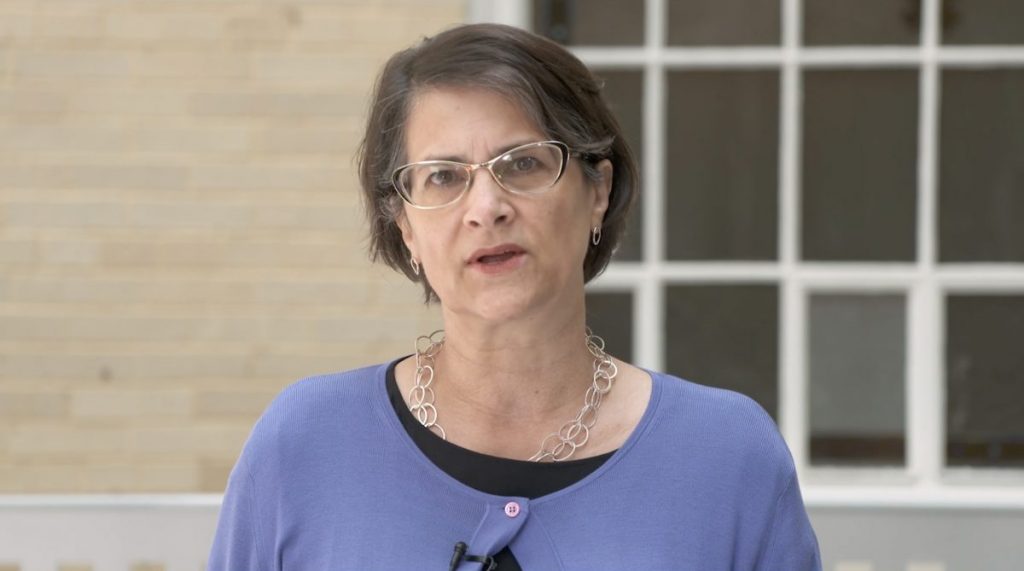
The average election day in the United States goes something like this:
Assuming their work schedules will allow it, voters find their spot at the end of hours-long waiting lines at their polling location — given that the location was not shut down without notice. Once they reach the check-in point, they cross their fingers hoping their registration — filed ahead of time in accordance to varying state deadlines — was not purged without their knowledge. Once the voter has satisfied the ID requirements of their particular state, they enter the booth and hope that the machine is functioning and uncompromised.
Voting — a right guaranteed by the government — has been guarded by hurdles at every corner. According to Martha Jones, the Society of Black Alumni Presidential Professor and Professor of History at Johns Hopkins University, this is just the newest chapter in a centuries-long tale of voter suppression in the United States.
Jones will return to Chautauqua Institution for the second time this season to discuss voter suppression at 10:45 a.m. EDT Tuesday, Aug. 18, on the CHQ Assembly Video Platform with a presentation titled “The Onerous Process of Amending the Constitution” as part of the Week Eight Chautauqua Lecture Series theme, “Reframing the Constitution.” The presentation is a look at how Constitutional amendments regarding voting rights do not always ensure Americans the vote.
“I want people to think hard about what it means when — whether it’s in Washington or it’s in your state legislature — lawmakers appear to be ready to stand by while we all struggle in many, many different ways to cast ballots in 2020,” Jones said. “I want people to appreciate that there’s nothing purely circumstantial about what we’re facing this November — that this country has a history of voter suppression, and it’s taken many forms.”
The presentation uses the 19th Amendment as a case study. The amendment states that no state shall deny someone the right to vote on account of their sex. But, it does not prohibit any other barrier to voting.
What would it be like if we actually guaranteed to all Americans the right to vote if the burden was on the state to ensure that we could cast our ballots? We would not be having this debate about (voting) by mail and the like,” Jones said. “We would understand that the government was responsible for ensuring our ability to cast ballots. But, we live in a regime that leaves the individual states with a great deal of latitude.”
“I want to look at the ways in which the amendment prohibits the states from doing things, but doesn’t promise to any American woman that she will be able to cast a ballot,” Jones said. “Many things (kept) women from the polls after 1920, including state requirements related to age, residency and citizenship, state requirements related to poll taxes, literacy tests, and the Jim Crow facets of state level voting rights.”
In 2020, Jones pointed out that voters face another issue keeping them from voting: the COVID-19 pandemic.
“Of course, COVID-19 presents people with a profound dilemma: Do I risk my health and my well being in order to cast the ballot? That was (also) true in 1920 for Black women who knew they would face intimidation and Klan-style violence if they tried to go to the polls,” Jones said. “Today, some of us are going to be asked to risk our health and maybe our lives in order to get to the polls.”
With the fear of mass gatherings at polling locations, many are expressing interest in mail-in voting. But President Donald Trump admitted to cutting funds to the USPS ahead of the election to slow down mail-in votes which he fears will lose him the November election. Many have called this a blatant act of voter suppression.
“What would it be like if we actually guaranteed to all Americans the right to vote if the burden was on the state to ensure that we could cast our ballots? We would not be having this debate about (voting) by mail and the like,” Jones said. “We would understand that the government was responsible for ensuring our ability to cast ballots. But, we live in a regime that leaves the individual states with a great deal of latitude.”
Jones will also lead a three-day scholar-in-residence seminar — from Wednesday, Aug. 19, to Friday, Aug. 21 — titled “The Right to Vote?: Why Constitution Amendments Have Never Been Enough.” In this, Jones will extend on her presentation’s subject, while looking at three specific suffrage narratives: those of Black men, white women, and Black women.
“I wanted to underscore that even something as momentous as a 15th or 19th Amendment does not guarantee any American the right to vote,” Jones said. “Still here in 2020 we recognize that we have to remain vigilant, that there are many kinds of vagaries Americans encounter — some of them sinister, some of them not so sinister, that are still impediments to the polls.”
This program is made possible by the Edward L. Anderson Jr. Foundation, Inc.




